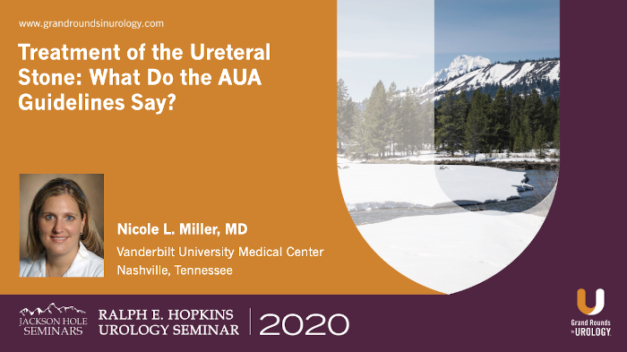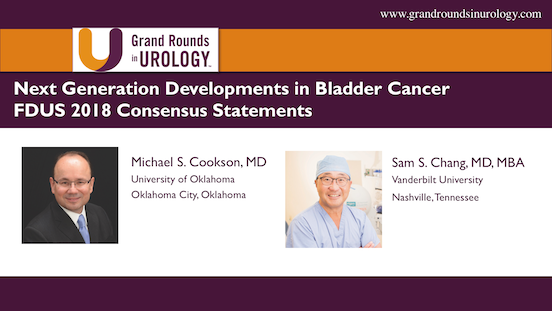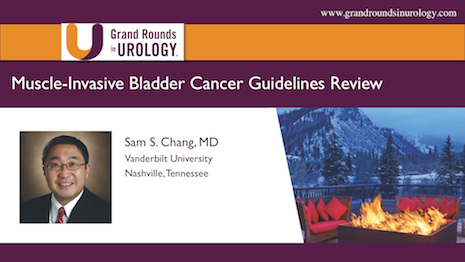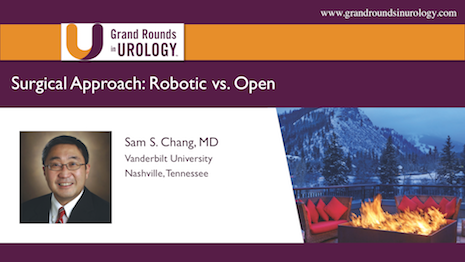Treatment of the Ureteral Stone: What Do the AUA Guidelines Say?
Nicole L. Miller, MD, FACS, Associate Professor of Urology at Vanderbilt University Medical Center, discusses AUA guidelines for the treatment of ureteral stones, and compares and contrasts them to the EAU guidelines, examining several cases to illustrate similarities and differences in treatment approaches. She observes that the EAU guidelines are updated more frequently than the AUA guidelines, which often puts them ahead in terms of pain management. Dr. Miller emphasizes that shock wave lithotripsy (SWL) treatment has the least morbidity and lowest complication rate, but ureteroscopy (URS) has a higher stone-free rate in all ureteral locations. She discusses which special cases would be best treated with URS, and why a ureteral stent is not necessary after uncomplicated URS. Finally, Dr. Miller looks at how multimodal therapy for stent pain can significantly reduce narcotic usage.
Read More




